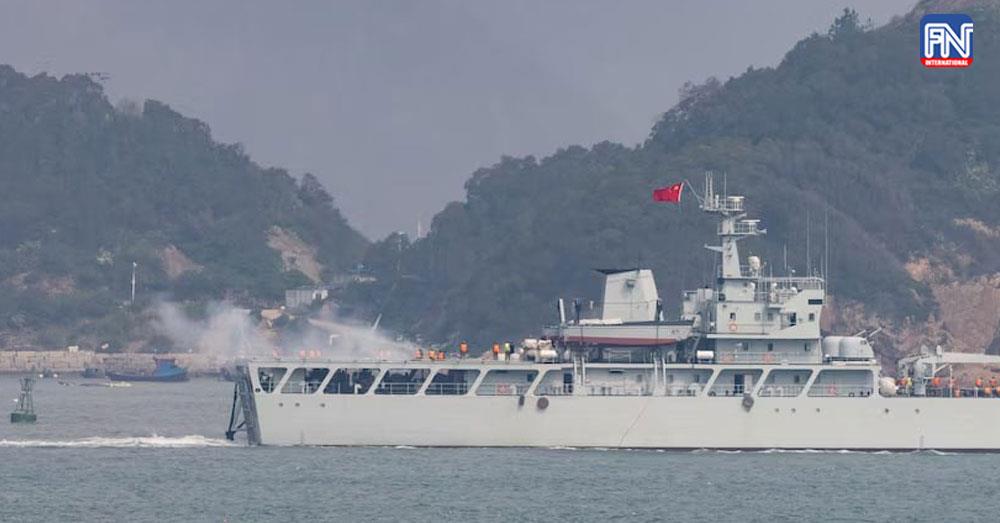BEIJING, April 10 (AFP) - China was due to hold live-fire drills on Monday (Apr 10) to round off three days of military exercises in response to Taiwan's president meeting with the US House speaker.
Chinese fighter jets and warships simulated strikes on the self-ruled island over the weekend in exercises that sparked condemnation from Taipei and calls for restraint from Washington.
Dubbed "Joint Sword", the three-day operation has included rehearsing an encirclement of Taiwan, the People's Liberation Army's (PLA) Eastern Theatre Command said.
China's war games involved sending planes, ships and personnel into "the maritime areas and air space" around all four sides of Taiwan, the army said of the exercises.
On Beigan island, part of Taiwan's Matsu archipelago that is within eyesight of China's mainland, 60-year-old chef Lin Ke-qiang told AFP he simply did not want war.
"We, common people, just want to live peaceful and stable lives," Lin said, adding Taiwan's military was no match for China's.
"If any war happens, now that their missiles are so advanced, there's no way our side could resist. This side will be levelled to the ground."
A report from China's state broadcaster CCTV on Sunday said drills had "simulated joint precision strikes against key targets on Taiwan island and surrounding waters", adding that forces "continued to maintain the situation of closely encircling the island".
The air force also deployed dozens of aircraft to "fly into the target airspace", and ground forces had carried out drills for "multi-target precision strikes", the report added.
Taiwanese President Tsai Ing-wen denounced the drills, which come after she met last week with US House Speaker Kevin McCarthy outside Los Angeles on her way home from a visit with two allied countries in Central America.
She pledged to work with "the US and other like-minded countries" in the face of "continued authoritarian expansionism".
In Washington, a State Department spokesperson said the United States had "consistently urged restraint and no change to the status quo", while the Pentagon said it too was "monitoring events closely".
"There is no reason for Beijing to turn this transit - which was consistent with longstanding US practice and policy - into something it is not or use it as pretext to overreact," a Defence Department spokesperson said Sunday, referring to Tsai's stop in California.
The United States has been deliberately ambiguous on whether it would defend Taiwan militarily, although for decades it has sold weapons to Taipei to help ensure its self-defence. China and Taiwan split at the end of a civil war in 1949. China views democratic Taiwan as part of its territory and has vowed to take it one day, by force if necessary.





